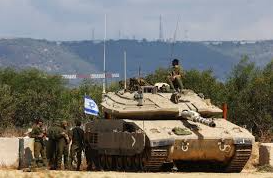Despite Ceasefire Agreement, Israel Maintains Presence at Key Border Locations
Israel has partially withdrawn its troops from southern Lebanon, keeping five strategic positions under its control as of February 18, 2025. The pullback allows displaced residents to return to villages along the border that had been devastated during over a year of fighting with Hezbollah.
One of the returnees, Alaa al-Zein, described his home village of Kfar Kila as “a disaster zone,” with the area reduced to rubble. Due to the extent of the destruction and military restrictions, many residents had to walk back to their homes after parking at the village entrance.
The conflict, which involved two months of intense warfare, was officially halted by a ceasefire agreement in November 2024. However, Israel had previously stated it would maintain troops at five key locations near the border, a decision confirmed by Israeli Defence Minister Israel Katz, who warned of consequences for any violations by Hezbollah.
Lebanon has protested Israel’s continued presence in its territory, calling it “occupation” and threatening to bring the issue to the UN Security Council. The Lebanese military has already moved into 11 villages along the southern border, replacing Israeli forces.
The United Nations has expressed concern over any further delays in the withdrawal process, highlighting that such delays would breach a 2006 Security Council resolution. As the situation evolves, analysts suggest that once Lebanon’s army is fully deployed in the south, Israel will likely complete its withdrawal, assuming Hezbollah remains compliant with the agreement.
The damage caused by the conflict is expected to require over US$10 billion for reconstruction, with more than 100,000 people displaced. Despite the challenges, villagers are determined to return, with some searching for lost relatives who died during the conflict.
In the wake of the war, there are growing calls for Hezbollah to disarm, with Lebanon’s government asserting that the state should hold the exclusive right to bear arms.








